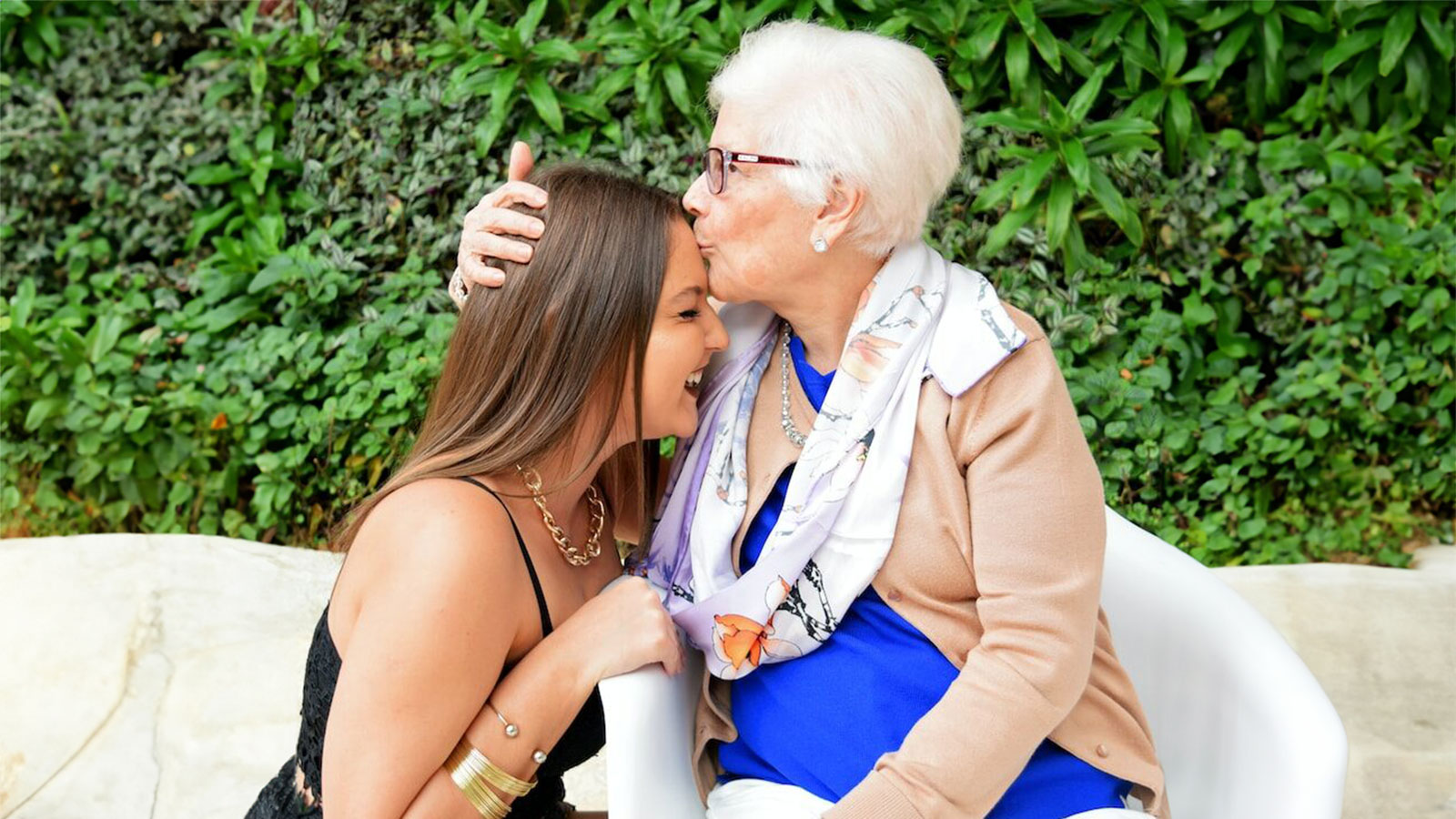Honor your father and your mother so that you may have a long life in the land that the Lord your God is giving you.
Exodus 20:12 CSB
The Bible is clear that we should honor our parents. But when we’re honest, we have to admit that living that out can feel complicated. What if they don’t deserve it? What about how they’ve hurt us? The more we understand this command and its context, the more fully we can understand how to apply it in our lives.
Here are five truths we can take from Scripture about the fifth commandment.
1. Honor means to make heavy.
The Hebrew word translated honor in Exodus 20:12 is the Hebrew verb kabad, which literally means to make heavy or to make dense. The Israelites used this word imagery to paint a picture of what it meant to honor someone, to make them heavy in their lives.
For us today, this may seem like a funny way to communicate honor, but for Israelites used to markets where things were weighed to determine their value, this would have held great significance. In effect, when God says, “Honor your parents,” he was saying to treat them in such a way that you are adding to their value and weightiness—their esteem, importance, and meaningfulness in your life and society.
Questions for us, then, might be: In what ways are we adding to our parents’ value in our lives and in our society? And in what way might we be stealing such value away?
2. It’s for both children and adults.
Children weren’t the only intended audience at the base of Mount Sinai. When Moses delivered the Ten Commandments, his primary audience was adults. As grown-ups, we have an opportunity to honor our parents, and this is perhaps even more important than the duty to them we had as children.
As children, our parents are our lifelines, but as we grow in independence—and our parents in dependence—such honor is all the more important, especially in a society that increasingly devalues the elderly.
For those lucky enough to have been raised in a healthy environment, honor might look like staying in touch with their parents, supporting them as they age, preserving their dignity, and perhaps even taking care of them when they are no longer able to care for themselves.
It is certainly more complicated for those who’ve experienced deep emotional wounds from one or both of their parents. In these cases, honor might include offering our parents forgiveness—perhaps while keeping healthy boundaries—treating them respectfully and gracefully, or simply being reserved in what we say about them in nonconfidential spaces.
Though honor will look different in these situations, when we are able to love those who have mistreated us, we align our hearts with our Lord, who did the same. As Jesus teaches, “You have heard that it was said, Love your neighbor and hate your enemy. But I tell you, love your enemies and pray for those who persecute you, so that you may be children of your Father in heaven” (Matthew 5:43–45 CSB).
3. The commandment has individual and corporate applications.
As Paul mentions in the New Testament, the fifth commandment was “the first commandment with a promise” (Ephesians 6:2 CSB), referring to the second half of the commandment, “so that you may have a long life in the land that the Lord your God is giving you” (Exodus 20:12 CSB).
The promise of a long life in the land may seem mysterious at first. Of course, general wisdom teaches us that our parents will lead us in ways that give us a better chance of living long and healthy lives, but it is when we understand this commandment corporately that the wisdom of this promise truly becomes clear.
God first gave this commandment to his people when they had been out of Egypt for several months, wandering in the wilderness. After generations of slavery, God was preparing his beloved people for a new life as free people in the promised land. He wanted to reshape the culture of their society so that their corporate practices treated their entire population with dignity.
If they set up a society where people honored their parents well into their late lives, that corporate practice of treating parents with honor would be applied to them too one day—helping them to also “have a long life in the land that the Lord your God is giving you.” This would have been especially significant considering the Israelites, coming out of four hundred years of slavery, had a society built around manual labor, where those incapable of such labor might be considered worthless.
Today, our society also devalues the elderly, and parents are generally not thought of as having huge significance later in our lives. By living within God’s design of honoring our parents, we help to build the foundation for a stable and healthy society.
4. We’ll called to honor both your father and mother.
Interestingly, the word “parents” is not used in the verse. Instead, God specified that we are to honor both our father and mother. This would have stood in stark contrast to other ancient cultures, which directed most honor towards the patriarchs of families.
God, though, continually calls his people towards honoring mothers alongside fathers. God even identifies with mothers. Here are just a few examples:
“Can a woman forget her nursing child,
or lack compassion for the child of her womb?
Even if these forget,
yet I will not forget you.” (Isaiah 49:15 CSB)
“As a mother comforts her son,
so I will comfort you,
and you will be comforted in Jerusalem.” (Isaiah 66:13 CSB)
“Jerusalem, Jerusalem, who kills the prophets and stones those who are sent to her. How often I wanted to gather your children together, as a hen gathers her chicks under her wings, but you were not willing!” (Matthew 23:37 CSB)
Honoring our mothers alongside our fathers allows us to see a side of God that we might otherwise miss. And for those with broken or nonexistent relationships with one or both parents, we can look towards our heavenly Father—and the mothering heart of God—to find healing and redemption in our stories.
5. Jesus modeled this for us.
Jesus’ life on earth shows how we can grow in our understanding of honoring our parents. Jesus honored his heavenly Father by obeying his commands, and it is touching to remember that in his last days, he entrusted his mother’s care to his spiritual brother, John (see John 19:26–27).
As we follow Jesus’ model, our Lord will continuously bring about our growth into his likeness (a process called sanctification). Over time, this process will lead to deeper faith and more Christlike character in our lives and in our relationships with our parents.
—
Honoring our parents is complicated because we must honor the parents we have, not the ones we wish we had. But the depth of our faith and our understanding of grace will expand as we seek to live out this truth practically in our own filial relationships.
What can you do this week to show honor to your parents?
Related Articles

What Does Worship Mean in the Bible

What Role Does Humility Play in Obedience? Learning from the Life of Saul/Paul


